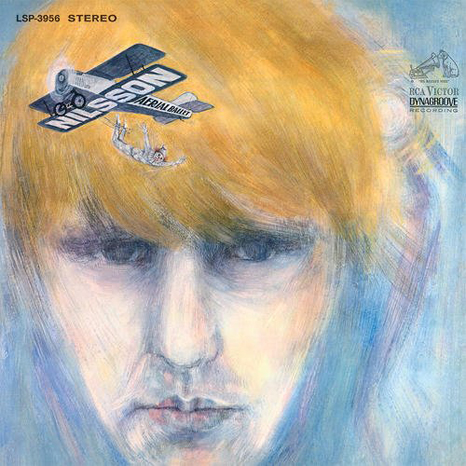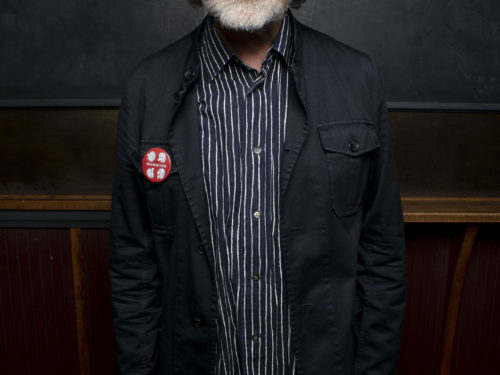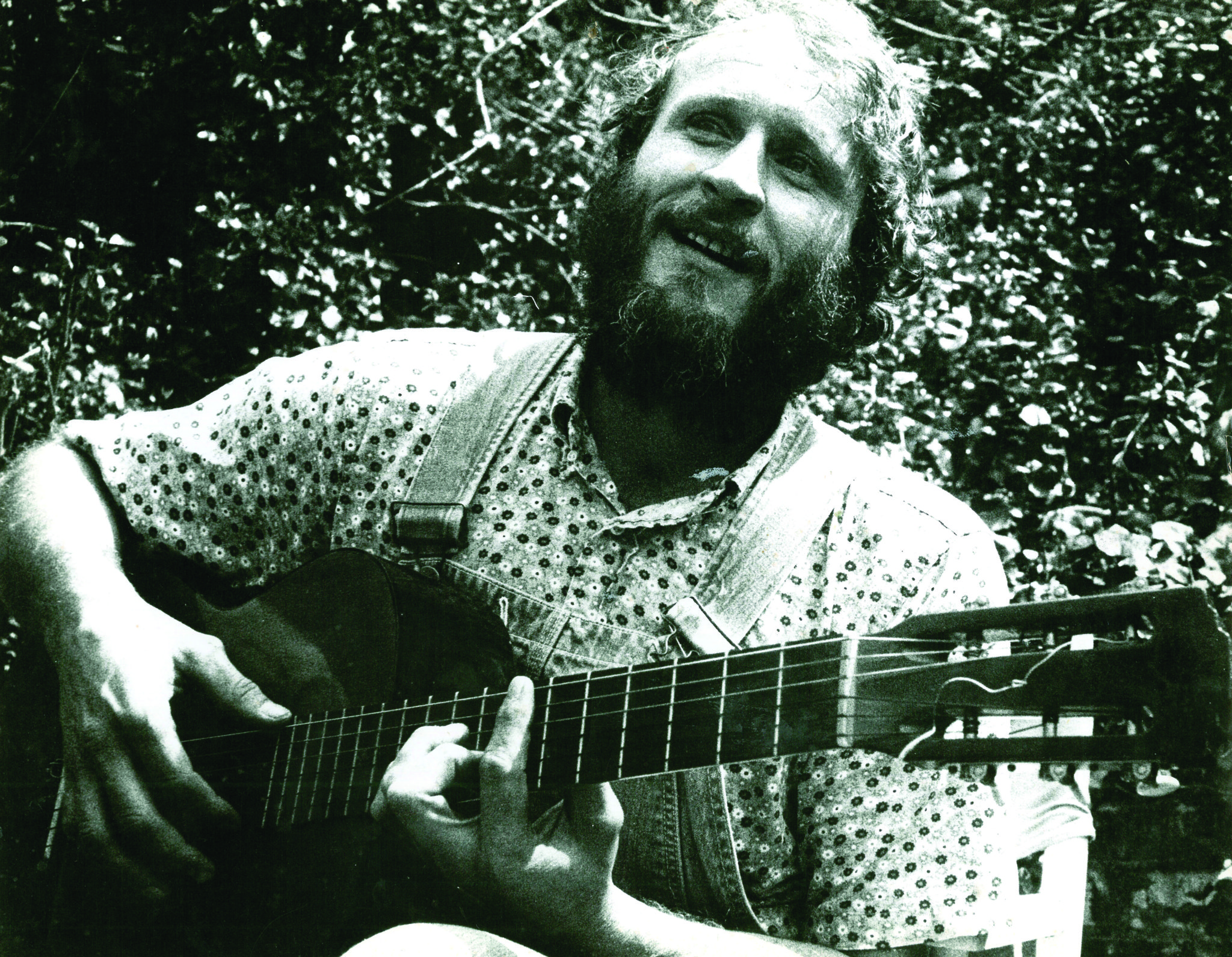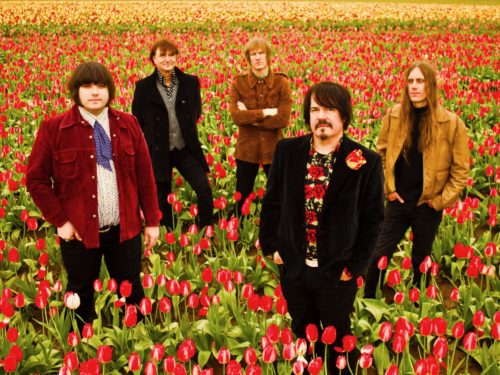Underneath the happy-sounding surface is a work full of despair, abandonment and desolation
The Beatles called him their favorite American group in 1968. He was Ringo’s Best Man and John’s drinking — er, binging — buddy. Rolling Stone ranks him as the 62nd greatest songwriter of all time, but he never cracked into the cultural lexicon. Harry Nilsson’s name may ring a bell, but as the title of the 2006 documentary Who Is Harry Nilsson (And Why Is Everybody Talkin’ About Him)? implies, he never achieved the widespread recognition he deserves.
Nilsson rarely performed live, which likely prevented him from joining his fab friends in historical notoriety. But that doesn’t mean his music has gone unheard for decades. First-time listener reactions to Nilsson’s music involve a common refrain: “he did this song?” Whether it’s “Everybody’s Talkin’,” “Without You,” “One” (is the loneliest number), “Coconut” (you put de lime in the coconut and drink ‘em both up), “Jump Into The Fire” or the Popeye soundtrack, Nilsson’s music has touched scores of unaware audiences.
Read the story of Scott McCaughey’s journey back to music after a stroke
His career was skewed by covers. The highest-charting songs he recorded were written by others; the highest-charting songs he wrote were performed by other groups covering him. His career peaked commercially in 1971 with Nilsson Schmilsson — No. 3 on the Billboard charts, a No. 1 single in covering Badfinger’s “Without You” — but his legend seems to have been relegated to being a cohort on Lennon’s fabled “Lost Weekend.” Nilsson was too drunk to sustain a life on the road, too uncomfortable to perform regularly, but most importantly, he was too talented to slip by unnoticed.
Nilsson’s magnificent second album, 1968’s Aerial Ballet, recently turned 50. The album is emblematic of his career: It’s full of deceptively happy tracks that, when examined deeper, are about suicide, abandonment and struggling to find a place in the world. It features two of his most recognizable songs in “One” and his cover of Fred Neil’s “Everybody’s Talkin’,” which broke out after it was featured in the Midnight Cowboy soundtrack in 1969. Three Dog Night’s version of “One” comes across as a hokey karaoke sing-along in a day-drunk bar — but it still somehow reached No. 5 while Nilsson’s failed to chart. Regardless of who’s singing, Nilsson’s music is undeniably brilliant; Aerial Ballet is his peak.
The album title may have inspired Aerosmith’s name, but it comes from the high-flying acrobatic circus act Nilsson’s paternal grandparents performed. His family is found all over the album. “Little Cowboy” is a lullaby written by Nilsson’s mother that appears in two minute-long segments. The emotional crux of the album is Nilsson’s relationship with his father, who abandoned his family when Harry was 3 years old.
Aerial Ballet is full of pain hidden in plain sight. As Nilsson sings in the album’s thesis statement on “The Wailing of the Willow,” “Love must lack a sense of humor / It laughs when other people cry.” At times the album marches across like a cheerful carnival romp, but diving into the lyrics provides a polarizing takeaway. The album’s first twinkling piano notes are interrupted by the sound of tap dancing and “a cha cha’s!” that tease the playfulness in his orchestration. Almost instantly the vaudevillian music clashes with the lyrics in “Daddy’s Song.” Nilsson tells the story of his father whom he fondly recalls playing with as a child, but who also “used to laugh when I ran away.” In “1941″ on his debut album, Pandemonium Shadow Show, Nilsson sings that his father walked out the door for good, leaving Nilsson to play alone and his single mother to raise a family. “Daddy’s Song” resumes the story on the rainy day he left.
“And how the mother did explain, trying to take away the pain / But he just couldn’t understand that his father was not a man / And it all was just a game.” In either denial or false hope, Nilsson sings “My old man is a good man… He’s a heckuva lot better than your old man.” He’s wishing for a normal childhood with a paternal foundation to build his life upon while pretending that his dad’s reasons for leaving were justified. But as he continues to imply throughout the album, the desertion has taken its toll: “The years have passed and so have I / Making it hard for me to cry.” He has been desensitized to the point of not knowing who he can trust, but he leaves hope that he will one day be a better father than his own.
The Monkees feature “Daddy’s Song” in their 1968 film Head. They amplify the vaudeville influence as Davy Jones sings an extravagant show tune rendition. The quick edits between Jones’ black and white suits while he struts across a soundstage mirror the song’s duality — a wave of cheer waiting to drag you into its undertow.
The Monkees paid for the exclusive rights to the song after Head, apparently without Nilsson’s knowledge. The opening track was omitted from future vinyl pressings after the first run. This bumps “Good Old Desk” up to the opening slot and throws the album off kilter. “Daddy’s Song” acts as the album’s emotional anchor, and without it, “Good Old Desk” is little more than a lighthearted ode to his constant workplace companion. With “Daddy’s Song” leading in, the significance of Nilsson’s attachment to his desk is magnified because of the sense of stability it provides in his life and work. “When my heart’s on the floor I just open the drawer of my favorite guest / And what do I see but a picture of me working at my good old desk.” Nilsson celebrates that “it’s always there,” a reliable friend to see him through the hard times.
Calm acoustic guitars usher in “Don’t Leave Me” until Nilsson’s multi-tracked voice overtakes the mix. Many of the songs feel like they are aimed at an ex-lover, but they could just as easily be intended for his father. “Think about the happy times / The groovy times / Don’t tell me they’re all gone / I just can’t carry on / And know that you’re not here / You’re not near anymore.” Lovers leave, but family is supposed to last forever. He is grasping onto obtainable relationships and burying the hurt under scatted outros with horns and strings blaring. (Steve Miller later made “Swingtown” a hit by echoing Nilsson’s descending melody.)
Nilsson creates a small cast of characters who are united by loneliness, inserting himself into the occasional number. For a singer at the relative start of his career, “Mr. Richland’s Favorite Song” is telling of Nilsson’s view of fame. The song is named after Tony Richland, Nilsson’s record promoter, who called it his favorite on the record. It details an aging singer whose career arc is reaching its tail end. The faceless fans who used to stay at the singer’s concerts for multiple sets are now older, married and have transformed into familiar faces who the performer must greet after shows to keep them returning. Similarly, “Mr. Tinker” follows a modest tailor who has been put out of business by the commercial clothing industry. “Mr. Richland” and “Mr. Tinker” skate by with the memory of a once-glorious past that has been usurped by progress, leaving them as struggling relics of the past.
The achingly beautiful “I Said Goodbye To Me” sneaks in after “Everybody’s Talkin’.” When paired together, the anxious echoes of his mind quickly become vehicles for suicide. “There’s nothing left to say I’ll pack up my memories then I’ll walk away / I hope I’m doing right but by tonight the horse and coach will be on his way,” he sings in “I Said Goodbye,” again using memories to as a way to contemplate his life’s worth.
By the time “One” hits, the album has pivoted from focusing on memories to the present. Nilsson’s arrangements are as emotionally driven as his singing. With standup bass, strings, flutes and harpsichord aiding the single note piano line, his reverberated voice is the song’s emotional core. As he stretches into his falsetto, his desolation steals the spotlight.
On the concluding “Bath,” Nilsson wakes up in a brothel and immediately plots his return. (He even slipped an “I’m awfully glad you let me come inside” pun past the censors.) With pompous piano chords introducing the song, it perfectly sets the stage for Nilsson’s declaration, “I’m beginning to think there’s hope for the human race.” All of the album’s bottled-up emotions bottom out with the line, which is presumably meant as a joke, but in the context of the album’s narrative it transforms into a heart-wrenching conclusion: Prostitutes and that good old desk are more reliable than his own father and ex-lovers.
In 1971 Nilsson remixed Aerial Ballet with Pandemonium Shadow Show in the underwhelming Aerial Pandemonium Ballet. The album was one of the first remix albums and allowed Nilsson to revisit his early material after reaching a wider audience. He nailed the songs the first time around. Changing the speeds, pitches and structures proved to be an unsuccessful venture. The album’s biggest success is that it pairs “1941” with “Daddy’s Song” right out of the gates.
What Nilsson created with Aerial Ballet is not a piece of easily digestible pop music — but it does contains those elements. It goes far deeper than the first sound that meets your ear. That’s probably why the Beatles loved his songs. They contain hummable melodies, gorgeous instrumentation and that three-and-a-half octave voice that cuts through any surrounding sound. Aerial Ballet is undeniably great, but the album’s darker genius comes from what’s buried underneath its seemingly beautiful surface.
Purchase or stream Aerial Ballet on Amazon here
Follow Craig and Split Tooth Media on Twitter
(Split Tooth may earn a commission from purchases made through affiliate links on our site.)




